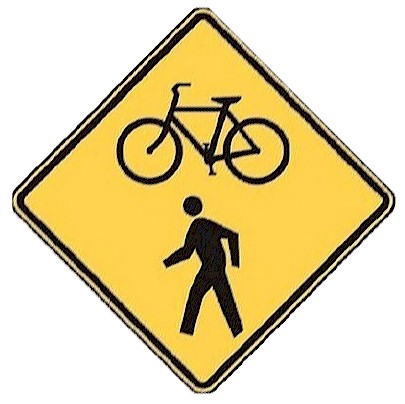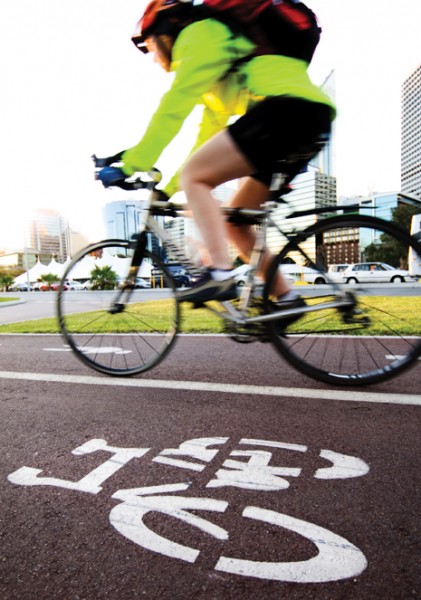3 Cities, 3 Towns from CT Take Up National Challenge on Pedestrian, Bicyclist Safety to Launch Thursday
/Six Connecticut towns and cities are among the first 150 in the nation to respond to a challenge issued by U.S. Secretary of Transportation (USDOT) Anthony Foxx aimed at promoting bicyclist and pedestrian safety. The year-long nationwide initiative will officially kick-off this Thursday.
The chief elected officials of the cities of Hartford, Stamford, and Bridgeport, and the towns of Glastonbury, Simsbury, and South Windsor have signed on to the Mayor’s Challenge, announced earlier this year at the annual meeting of the U.S. Conference of Mayors. The Mayors’ Challenge for Safer People and Safer Streets is a call to action by Secretary Foxx for mayors and local elected officials to take significant action to improve safety for bicycle riders and pedestrians of all ages and abilities over the next year.
The challenge is based on the 2010 USDOT Policy Statement on Bicycle and Pedestrian Accommodation to incorporate safe and convenient walking and bicycling facilities into transportation projects. In the policy statements, USDOT recognizes the many benefits walking and bicycling provide — including health, safety, environmental, transportation, and quality of life.
The challenge calls on Mayors, First Selectmen and other chief elected officials to:
- Issue a public statement about the importance of bicycle and pedestrian safety
- Form a local action team to advance safety and accessibility goals
- Take local action through seven Challenge activities (listed below)
In Connecticut, the advocacy organization Bike Walk Connecticut is urging Connecticut's chief elected officials to participate in the challenge and engage their residents in carrying out the initiative’s objectives. They applauded Foxx, a former Mayor of Charlotte, N.C., for making “bicycle and pedestrian safety is his signature issue as the head of USDOT.”
The challenge activities, as outlined by USDOT, include:
- Take a Complete Streets approach
- Identify and address barriers to make streets safe and convenient for all road users, including people of all ages and abilities and those using assistive mobility devices
- Gather and track biking and walking data
- Use designs that are appropriate to the context of the street and its uses
- Take advantage of opportunities to create and complete ped-bike networks through maintenance
- Improve walking and biking safety laws and regulations
- Educate and enforce proper road use behavior by all
A total of 154 cities nationwide have signed on as of March 6, with the official kick-off later this week in Washington, D.C. Additional municipalities in Connecticut and across the country are expected to add their names to the list of participating cities. USDOT has invited Mayors' Challenge participants to attend the Mayors' Challenge Summit kick-off event at USDOT’s Headquarters’ office in the nation's capital on Thursday, March 12. The Summit will bring together participating cities to network and learn more about the Challenge activities, and USDOT staff members will share the resources and tools available to help cities with Challenge activities.
Federal officials note that the lack of systematic data collection related to walking and bicycling transportation, such as count data, travel survey data, and injury data, creates challenges for improving non- motorized transportation networks and safety. Communities that routinely collect walking and biking data, they point out, are better positioned to track trends and prioritize investments.
motorized transportation networks and safety. Communities that routinely collect walking and biking data, they point out, are better positioned to track trends and prioritize investments.
In advocating a “complete streets” approach, USDOT emphasizes that complete streets “make it safe and convenient for people of all ages and abilities to reach their destination whether by car, train, bike, or foot” and they call for “a policy commitment to prioritize and integrate all road users into every transportation project.”
Bike Walk Connecticut has reported that there were 49 bicycle or pedestrian fatalities in Connecticut in 2012, the most recent data available. There were an additional 1,226 injuries to bicyclists or pedestrians. In total, from 2006 to 2012, there were more than 10,000 injuries and nearly 300 fatalities from crashes involving pedestrians or bicyclists, according to the organization, based on federal and state data.



 The proposal was also supported by the
The proposal was also supported by the 





























